Forget Albo ~ How Crikey + DDB Group Melbourne were the real election winners. Well, kinda
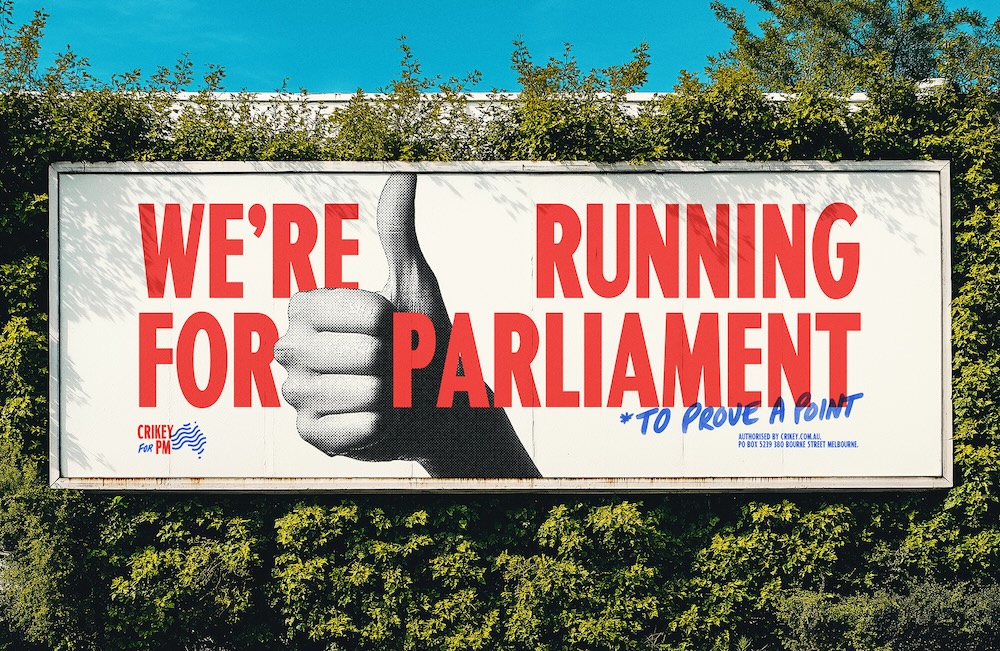
This election, Crikey ran for Parliament with a campaign from DDB Group Melbourne. No, they didn’t get elected, but that wasn’t the point.
Crikey threw its hat in the ring to explore how political candidates take advantage of loopholes in the electoral system. Loopholes that allow for things like Clive Palmer’s dubious ads, Labor’s ‘Mediscare’, and the Coalition’s boat arrivals spam. A lot of these are taken for granted by political operatives and insiders who’ve worked in the system for years. But to voters, they stink.
So to investigate them from the inside, Crikey faxed its application, paid the electoral commission (AEC), registered a real candidate, assigned reporter Charlie Lewis as campaign manager, and started making the most of those loopholes.
The editorial series, Crikey for PM, contributed towards Crikey’s 1.25 million page views across the election campaign.
Says Psembi Kinstan, Chief Creative Officer, DDB Group Melbourne: “Political advertising operates within an entirely different rulebook to every other advertiser in the country. They can lie, mislead and misdirect. What simpler way to spotlight this embarrassing ridiculousness than by running our own political campaign.”
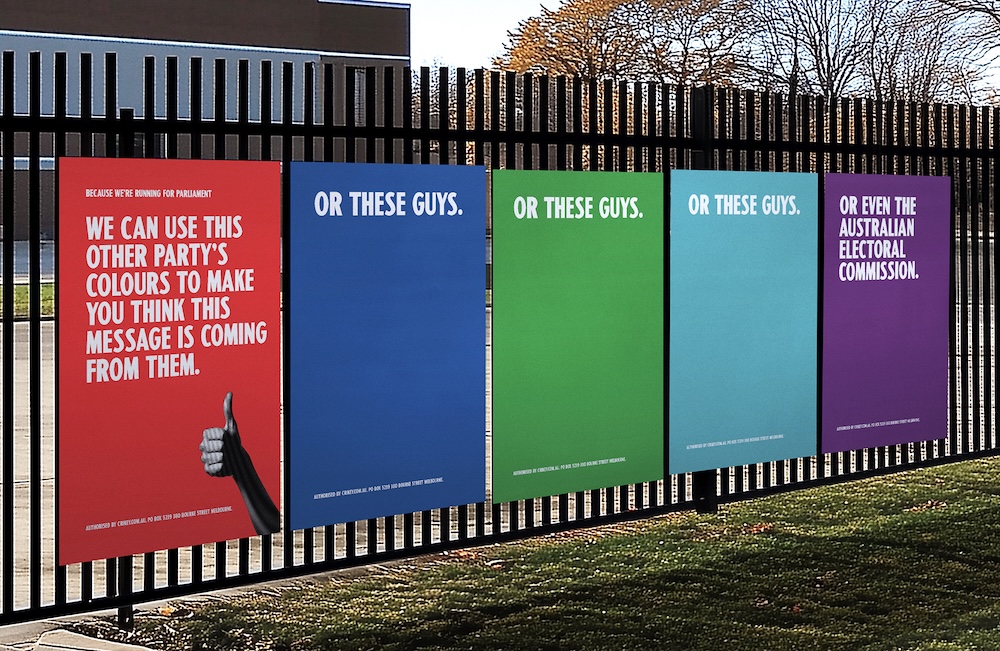
Throughout the month of campaigning, “Crikey for PM” produced mock up corflutes to show how candidates can mislead voters, appearing in the colours of the major parties and even the electoral commission itself.
Sure, the signs were misleading, but according to the AEC’s own fact sheet, it has no power to remove any of Crikey’s signs, regardless of the content, outside of six metres of a polling booth.
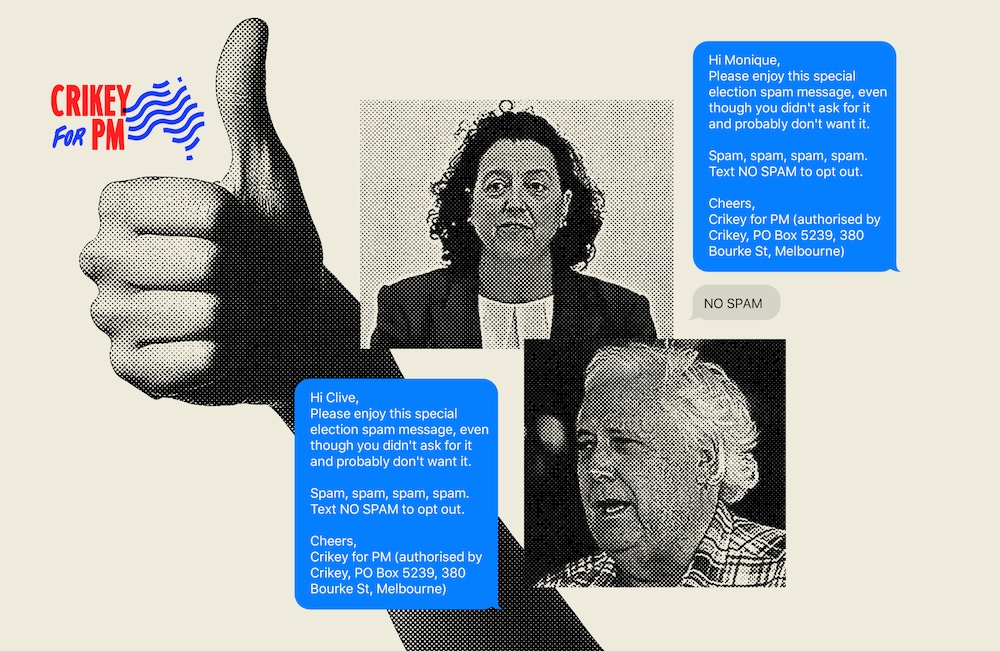
Crikey didn’t stop at corflutes. Tapping into public resentment over the practice, the team sent spam text messages, directly to the MPs and staffers responsible for spam themselves. Crikey for PM’s campaign phone texted Kooyong independent Monique Ryan, as well as Trumpet of Patriot’s Clive Palmer, and representatives of the Liberal and Labor parties.
Of course, it didn’t matter how many times Monique Ryan responded with ‘NO SPAM’ to opt out, political parties are exempt from the Spam Act 2003, so Crikey for PM could carry on.
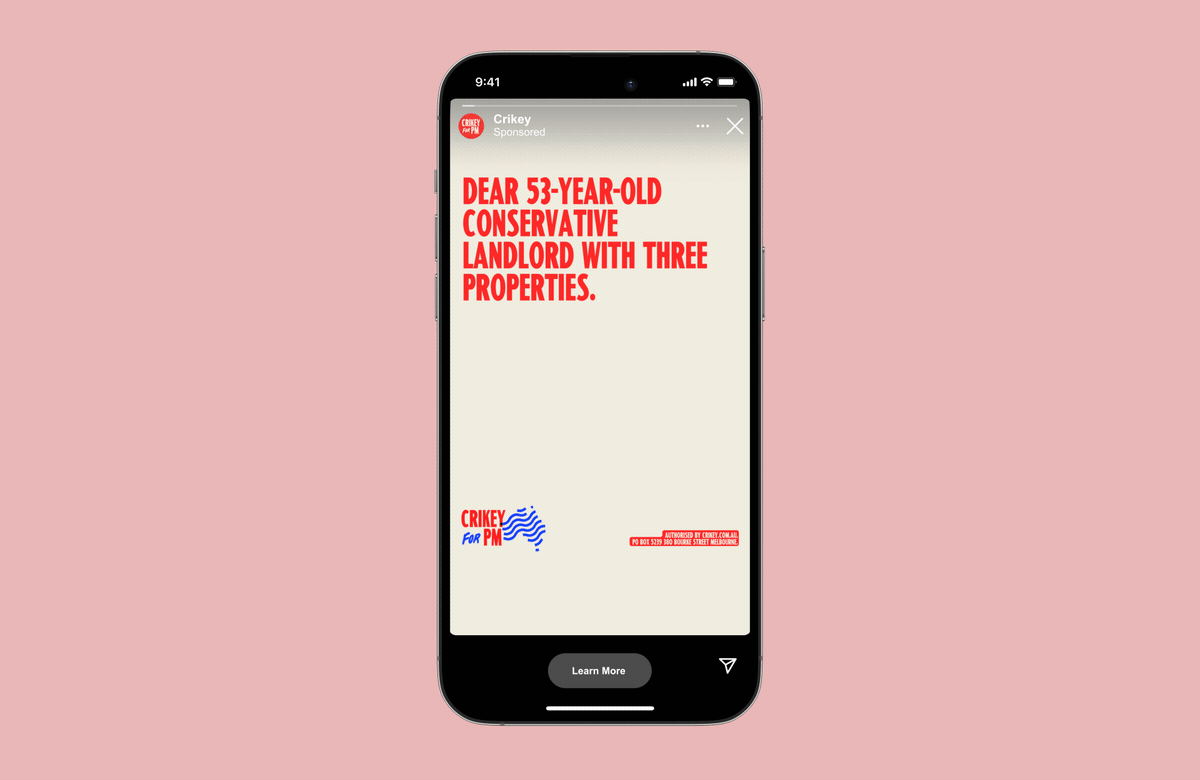
Whilst Crikey’s campaign headquarters did not have access to the sophisticated data that the major parties do, DDB Melbourne tried its hand with precisely targeted social advertising that showed the contradictory messages parties have the opportunity to use to sway audiences, all in the name of winning votes.
“If we had a campaign manager with some strategic nous, the ‘Crikey for PM’ ads could have been a lot more targeted and effective,” Crystal Andrews, Crikey’s readers’ Editor and Founder of Zee Feed, explained (in needlessly personal terms, frankly).
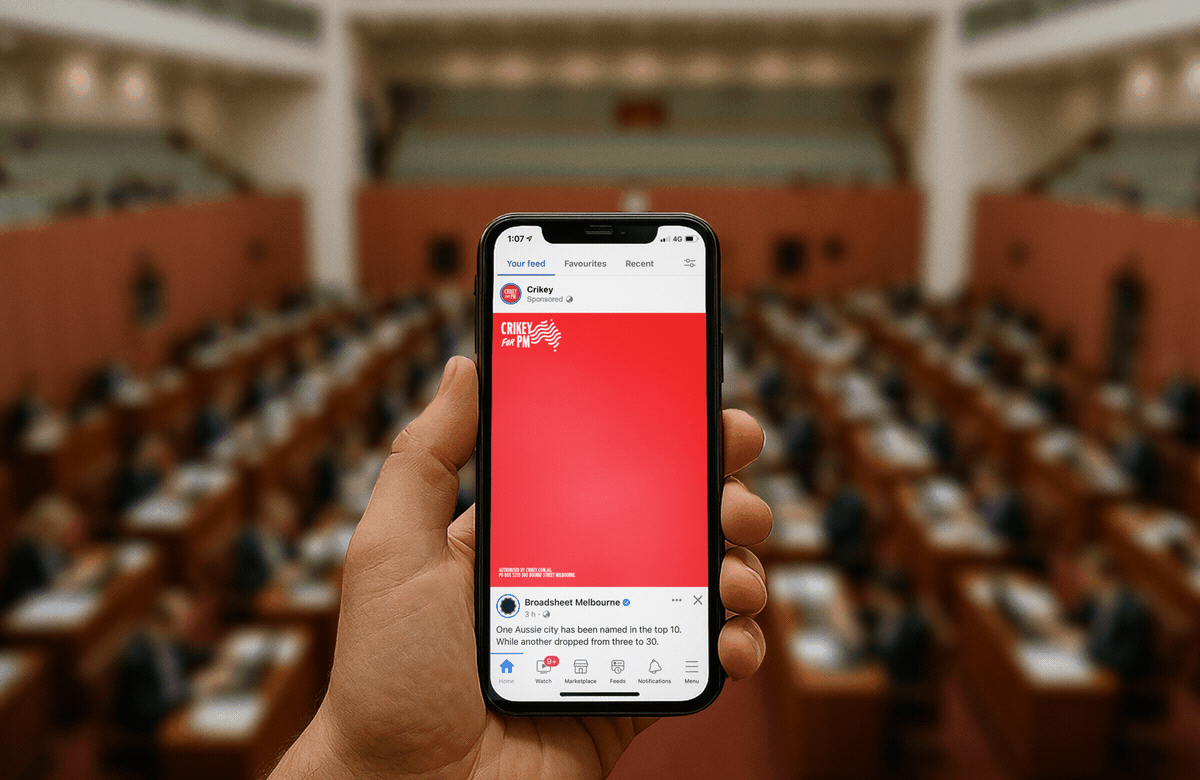
Crikey also targeted politicians and staffers in Parliament House via Meta to illustrate just how precisely campaigns can track and target potential voters.
Of course, Crikey and DDB Melbourne didn’t let the truth get in the way of their campaign either. They then told a lie on a giant billboard*.
Political parties can happily lie in political advertisements because there’s nobody that regulates truth in political advertising, beyond very narrow bounds.
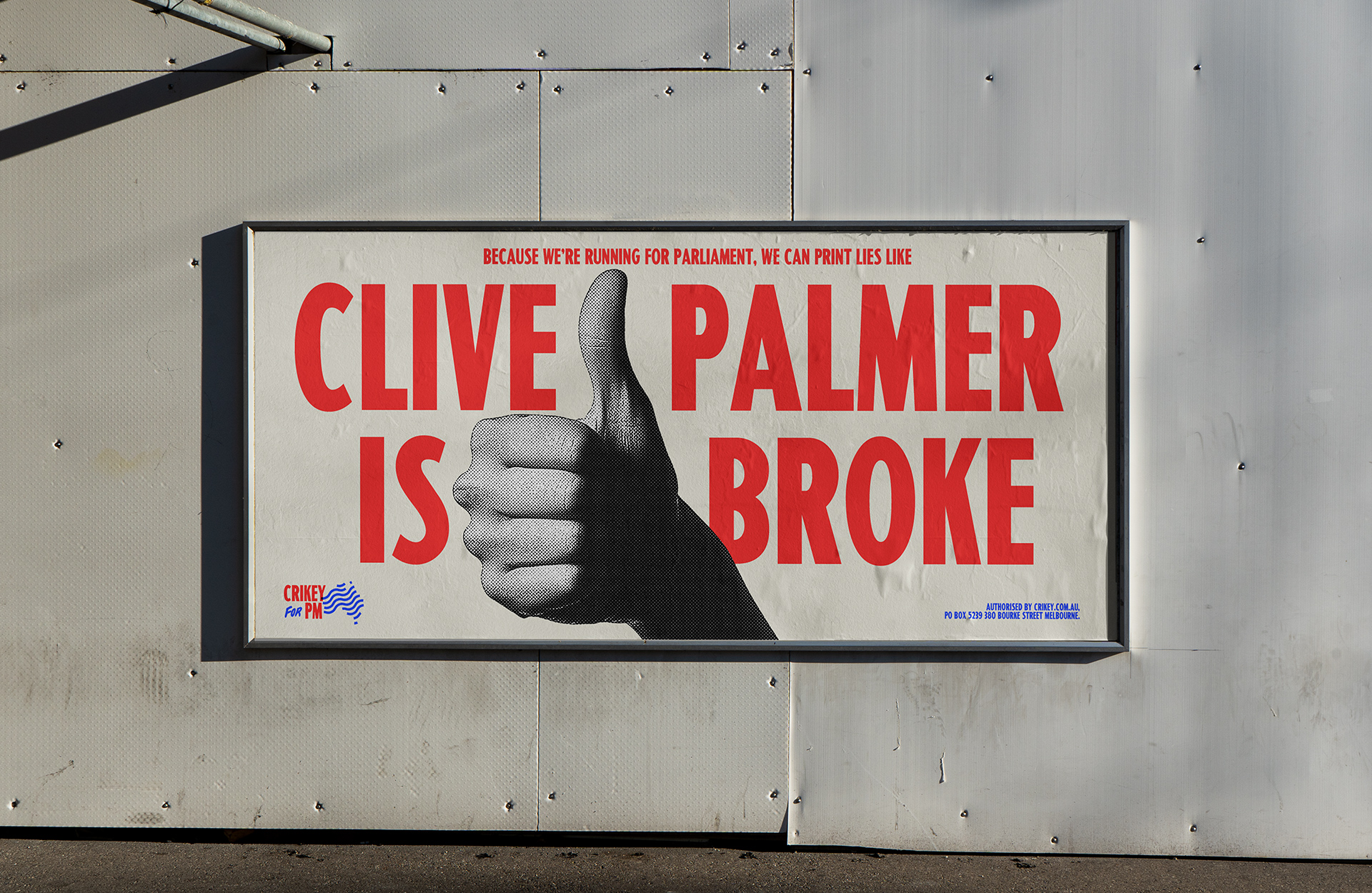
*Oh, you didn’t actually think we could afford a billboard, did you? Not at these election-time rates! This is a mock-up.
Agency: DDB Group Melbourne
Client: Crikey
Want to leave a comment? Share your thoughts below, making sure to include your full name and email address. If you have a news tip or story idea, please feel free to email ricki@campaignbrief.com.
